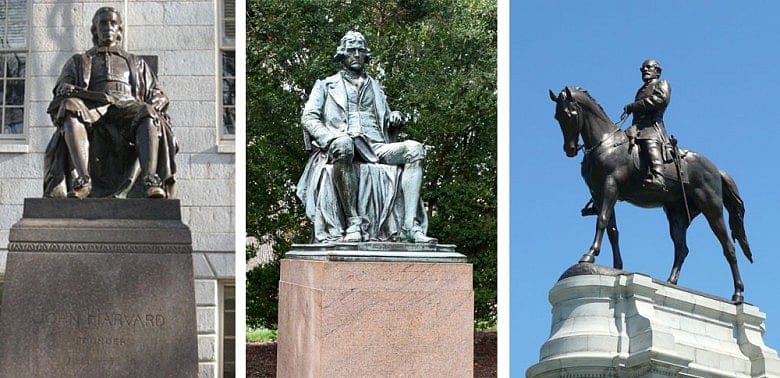Don’t look now, New England, but political correctness can bite you, too

When Thomas Jefferson's original tombstone, a granite obelisk that was given to the University of Missouri in 1885, was slated for restoration a scant three years ago, the university could not have been prouder of owning such an important artifact of a Founding Father.
Indeed, seizing upon the moment, the Mizzou press office issued a release touting ties with the Sage of Monticello: It noted that the University of Missouri was the first public university in the Louisiana Purchase Territory (for which Jefferson was chiefly responsible) and that its curriculum had been modeled on Mr. Jefferson's ideas about education.

